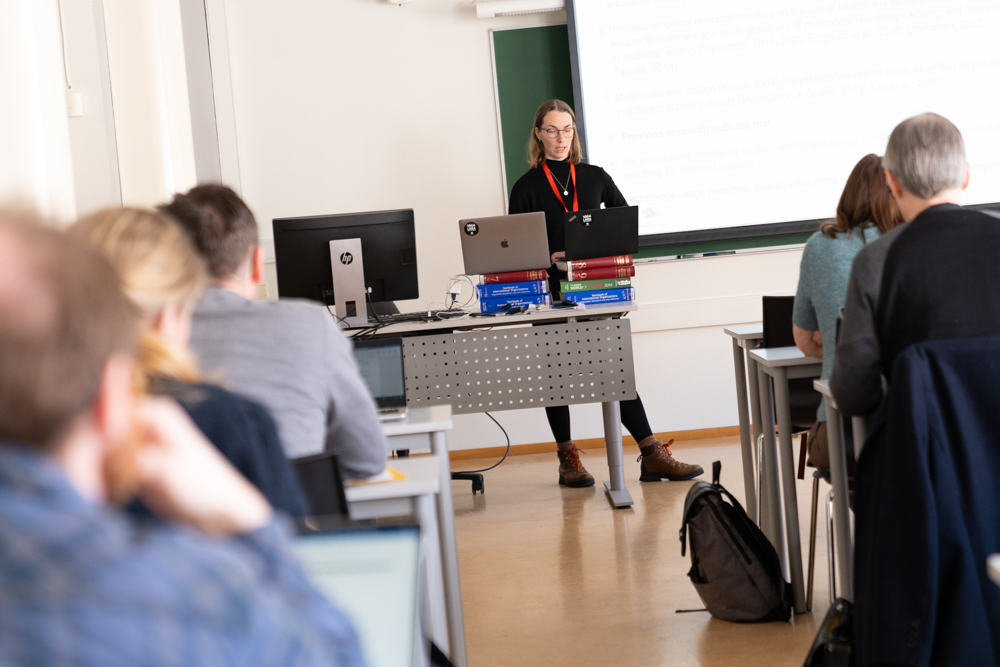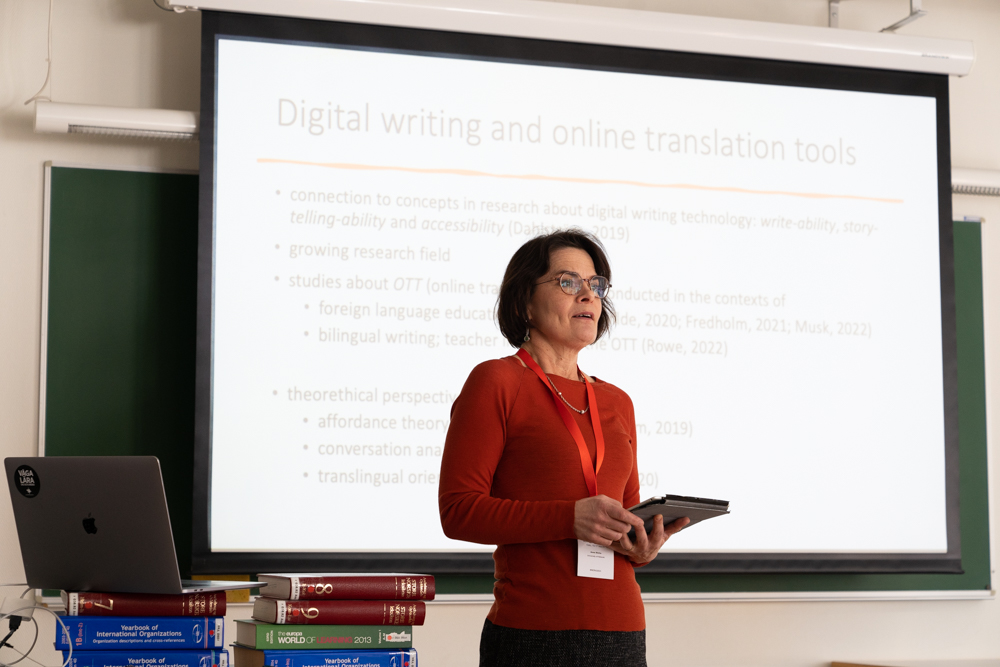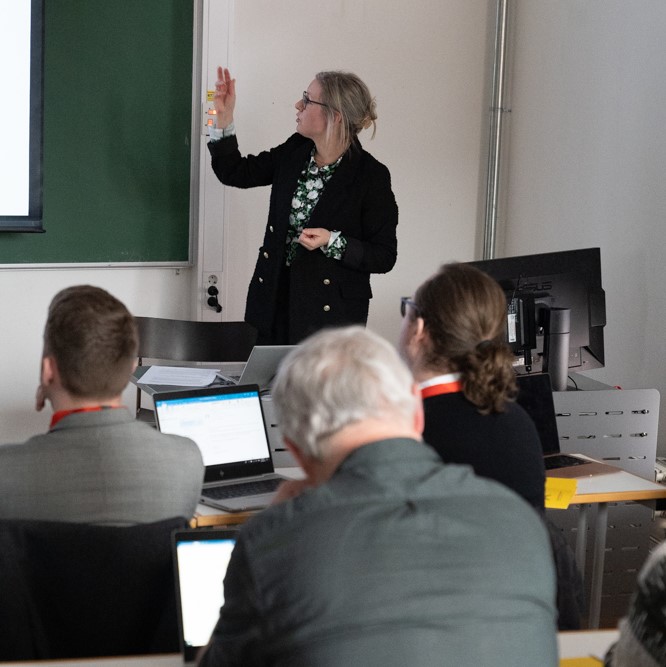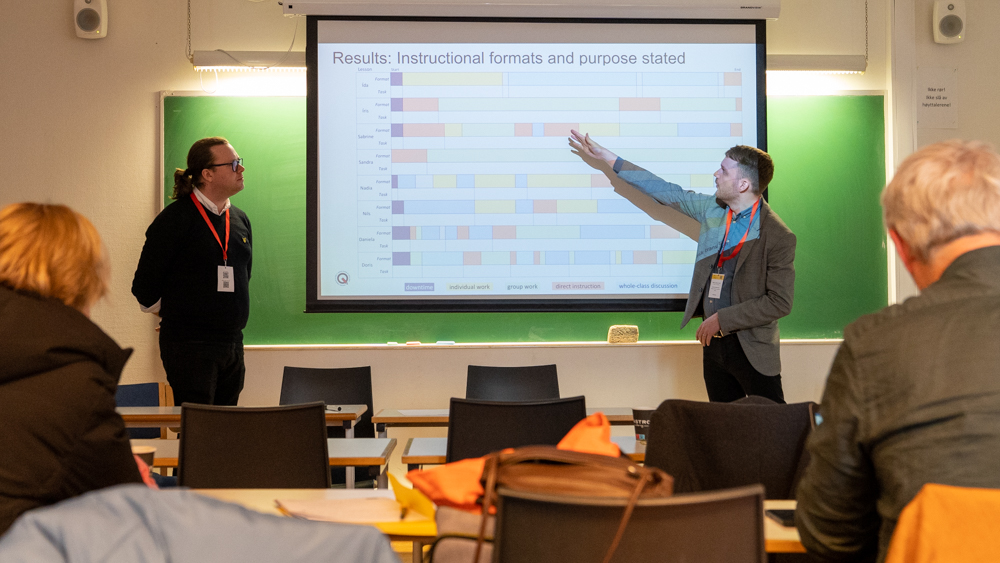NERA is the largest gathering of education researchers in the Nordic region.
QUINT Centre Director Kirsti Klette and colleagues discussed insights from the LISA-Nordic project, while members of the Connected Classrooms Nordic project presented preliminary findings from ongoing research.
The new normal of digitalized classrooms
The relationship between student and technology was a central theme in the Connected Classrooms Nordic (CCN) symposium.
“Technology has infiltrated Nordic students' everyday schoolwork, and these new, digitally mediated environments have changed a wide range of classroom activities. This has consequences for learning and opportunities for participation,” says Anna Slotte. Slotte is one of two principle investigators for the CCN project, along with Marie Nilsberth.
The presentations at the CCN symposium mostly focused on what happens when student and technology meet in the classroom, and on how to conceptualise this meeting from a research perspective.
“Students and technology are entangled. It’s not a straight process, it’s very dynamic and changing all the time,” says associated QUINT researcher Marie Slot.
Blurred boundaries
QUINT PhD fellow, Jenny Högström, presented her work in progress on the use of digital writing technologies like spell-checking software in secondary schools in Finland.

“Usually the focus is on the student and how they use the technology, but the technology is an integral component in meaning-making and can be considered as an active co-actor in the classroom,” says Högström.
Högström gave examples of how spellcheck software helped shape the final text that was produced by a student, suggesting that the technology is neither neutral nor entirely separate from the student.
Problematizing the conceptual barrier between ‘student’ on the one hand and ‘technology’ on the other was a recurring theme at the symposium.

Slotte’s presentation focused on a study of digital translation tools and multilingualism. The early findings of the study indicate that students use a wide variety of strategies when encountering a language challenge, some of them unnecessarily complex.
Marie Nilsberth presented findings on a study of digital learning platforms that are used in many secondary schools. The study tracked in detail what digital resources students were spending time on during a lesson and shows how students create their own individual learning paths as they navigate on learning platforms, Google and other web-based sites.
The CCN project uses video recordings made with multiple cameras, focusing on both the teachers’ instructions and the students’ activities on computers and other digital resources.
More details about the Connected Classrooms project will be presented in a forthcoming article on this webpage later in the year.
Towards a common language for teaching quality?
At a symposium on Thursday QUINT researchers presented findings that draw on the video data gathered during the LISA-Nordic study.
LISA-Nordic examines teaching practices in lower secondary mathematics and language arts by applying the Protocol for Language Art Observation (PLATO) framework to video footage of those classrooms.
In her introductory remarks, Kirsti Klette argued that the use observation frameworks like PLATO can form the basis for building a common language amongst researchers for describing aspects of quality in teaching.
“The framework we’ve used across the LISA-Nordic studies and the conceptual language it provides gives us a starting point for supporting deeper collaborations in the study of teaching quality,” says Klette.
Discourse in language arts classrooms

QUINT Postdoctoral Fellow Camilla Magnusson presented findings of study looking at what characterises language arts classrooms with high-level discourse (as defined by the PLATO manual).
“Classrooms that score high on classroom discourse had open questions, information seeking questions and a mix of the types of questions the teacher asks,” says Magnusson. “These characteristics applied regardless of the national context.”
Cognitive activation in mathematics classrooms
Though PLATO was initially developed for use in language arts classrooms, the LISA-Nordic project has found success applying the framework to mathematics lessons as well.
In their presentation, Jóhann Sigurjónsson and Alexander Selling showed how PLATO was used to study cognitive activation in secondary level mathematics classrooms.
“There were very few classes with high levels of cognitive activation. That was the same across all countries,” says Selling.

“The lessons that did score highly had nothing in common in terms of instructional formats and stated purpose, but we did see that how the teachers implemented the tasks (i.e. reducing versus strengthening the intellectual challenge) was more important than the selection of tasks,” says Sigurjónsson.
Sigurjónsson has recently completed a PhD under the QUINT Centre, focusing on cognitive activation in Nordic and Icelandic mathematics classrooms. Check this website for an upcoming interview with Sigurjónsson about his project.
